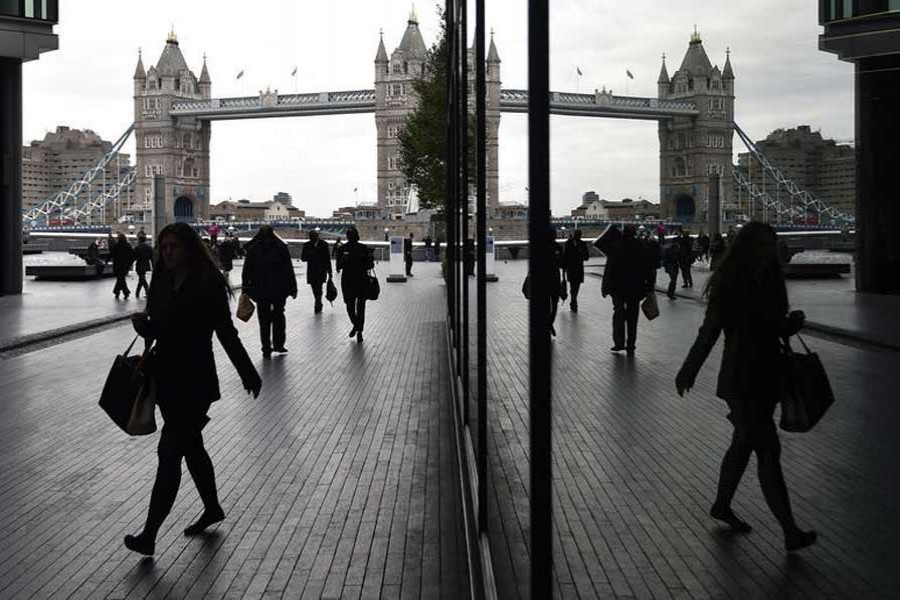Britain’s economy remains stuck in low gear but price pressures are rising again, according to surveys on Wednesday that will probably keep the Bank of England on track to raise interest rates soon, reports Reuters.
The IHS Markit/CIPS Purchasing Managers’ Index (PMI) also showed businesses were increasingly worried as Britain’s departure from the European Union approaches with little clear sign of its future trading relationships.
The PMI showed growth in services activity unexpectedly sped up a little last month, compensating for weaker readings in manufacturing and construction reported earlier in the week. Even so, growth among British companies lagged behind that of their peers in a resurgent euro zone.
Taking the three surveys together, Britain’s economy probably expanded at a quarterly rate of around 0.3 per cent in the third quarter, matching its second-quarter performance, survey compiler IHS Markit said.
While economists said they expected the BoE would probably follow through on its rate hike signals in November, many also urged caution.
“Given the weakening outlook for growth it may be wise for the (Monetary Policy Committee) to wait until next year before beginning to raise rates, once the future path for UK business becomes clearer,” said Yael Selfin, chief economist at KPMG UK.
Ratings agency Standard & Poor’s said it was sceptical about the need for a BoE rate hike. It suggested recent comments by the central bank about raising rates were intended to push up sterling and cool inflation.
Sterling rose after the services PMI report, gaining about 0.4 per cent.
Most economists polled by Reuters have said they expect rates to rise in November, even if they consider such a move premature.
The PMI picked up to 53.6 in September, slightly better than expectations in a Reuters poll of economists for it to hold at August’s level of 53.2.
But it also contained some discouraging signs: new orders increased at the weakest pace since August of last year, inflation pressures rose at the fastest pace for several months and confidence sagged.
Services companies cited Brexit-related uncertainty and worries about the economy as reasons for their darker mood.
Britain’s economy initially withstood the shock of the June 2016 vote to leave the European Union. But growth began to slow this year as inflation rose following the pound’s post-Brexit vote plunge, which hit the spending power of households.
Against that background, the BoE surprised investors last month when it said most of its policymakers believed they were likely to raise rates soon, citing a reduced tolerance for above-target inflation.
The PMI report showed the costs of services companies rose at the fastest pace since February, and they raised their own prices at the quickest rate in five months, suggesting inflation could top three per cent in the coming months.
“The rise in price pressures will pour further fuel on expectations that the Bank of England will soon follow up on its increasingly hawkish rhetoric and hike interest rates,” Williamson said.
IHS Markit’s composite PMI, which combines services, manufacturing and construction, edged down to a seven-month low of 53.6 in September - leaving it some way off levels that would normally be consistent with BoE rate increases.


